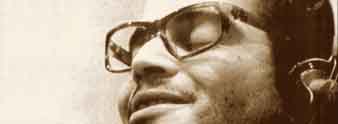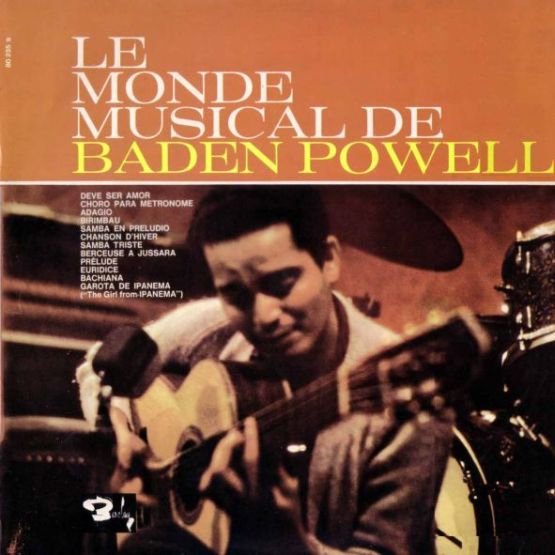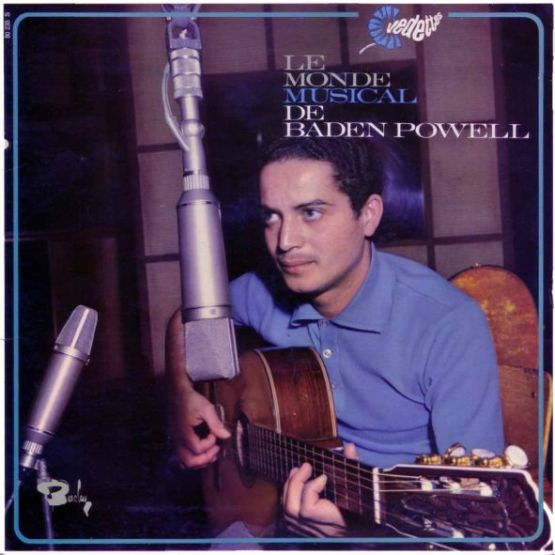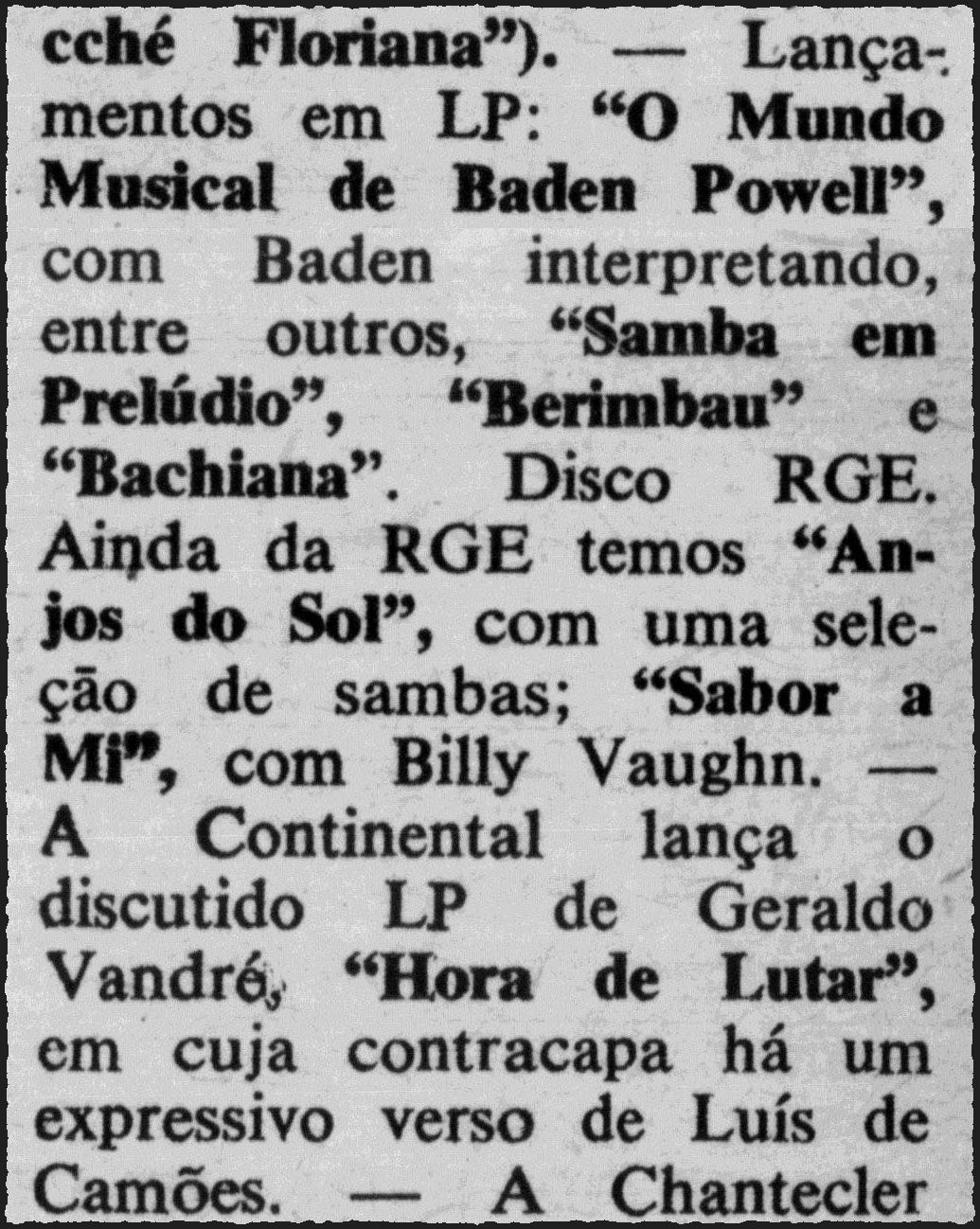|
BrazilOnGuitar says: This first record for Barclay in 1964 is one of Badenīs most famous records in Europe. The sound of the original record was never the best. To much bad re-printings exist and circled around on vinyl and also on cd. The begin of a much better sound was the japanese cd release in 1999 and the new release in 2005 to the fifth anniversary of Badens passing.
Both cds are ways to rediscover this album,
which has a exotic mix of brazilian and european compositions. The new french cd is a digipack with a 10-page-booklet with three pictures. Missing is the orignal layout of the gatefoldcover as a time-document and the linernotes* by the producer from the another french pressing.
The japanese edition (POCJ-2765) includes the complete cover, but not the linernotes. We canīt understand the choice of the pictures of 1970 and 1974 in the new cd-edition. Pictures of his second arrival in Paris would be better: a Brazilian carrying a musical world in his guitarcase. There exist two french records (also as MC) with the same number,
one has gatefoldcover. The french reissue cd is a digipack with a 10-page-booklet in french and english by Dominique Dreyfus.
We thank our friends Jerome Outhier (France) for his gift and french translation of the linernotes and Robert G. (Germany) for his english translation. And Horst for his scans of the japanese cd.
* Linernotes from the "Le Monde Musical de Baden Powell" (80.235 S) , 1964
Brazilian music is, as its country which is 16 times as big as France, diverse, varied, surprising, subtle and simple all at the same time. This music only asks, as Brazil, for regognition and love.
With this album, which is the first he releases in Europe, the guitarist & composer BP presents us a complete palette of his musical world. From African rythms to his personal perceiving of classical european composers, and through delicate reminiscence of melodies from the Antilles, to negro american jazz accents: BP reminds all these influences on his guitar.
He's 27 years old. Born in Rio. He played since 8 y.o. After having studied in Rio academy, where he improved his style and learned composition, he started like many other, in clubs with little rythmic entities. He eventually showed up in several Tv & radio broadcasts, and his compositions became very popular.
He teamed with Tom Jobim, Carlos Lyra, Roberto Menescal for work and tours in several big cities in Brazil. He recorded with Herbie Mann and Jimmy Pratt just before his departure to the US. After some concerts in the Village Vanguard, his friend and poet Vinicius de Moraes made him come to Paris in the late of 63. He gave recitals and tv shows: Living room, musicorama etc... Asked for his guitaristic influences he answers: Segovia, Van Eps, Django are people that are part of the musical world i love.
With this record you'll be able to discover samples from this musical universe.
Here are the themes:
DEVE SER AMOR: was recorded using play back device. Baden first recorded the rythmic part with the bass & drums. Afterwards he recorded the melody. The same process was involved with BACHIANA.
CHORO PARA METRONOME is quite a challenge. The choro which was originally an improvisation over folkoric patterns, turns here into a guitar piece. The metronome replaces the whole rythm section. Fitting perfectly with this souless rythm, BP shows here its astounding technique.
The Albinoni ADAGIO and the Bach PRELUDE so seduced the guitarist, that he did want to give a respectful homage to these composers by playing these two pieces.
BERIMBAU is the name of a musical instrument looking like an arc, which is used in the Capoeira. This is a dance which partly look like wrestle, and is done by Nordeste youth, especially in the Bahia area. It is undoubtly of African inspiration.
SAMBA EM PRELUDIO is made of two distincts melodies. Baden plays the first which is in turn played by the orchestra. Then the guitar plays the second theme, and then the two parts are played together, and taken by cello and Francoise Waleh's voice.
CHANSON D'HIVER is the first song that Baden wrote when he came to Paris in December 63.
SAMBA TRISTE opens on a very dark climate and dramatic first part, then the repetitive rythm takes over and leads to the conclusive chords.
BERCEUSE A JUSSARA is a delicate composition, dedicated to his little niece "Sobrinha" Jussara.
EURIDICE is a Vinicius de Moraes composition, which illustrates the Orphee myth.
BACHIANA is a piece written with, once again, Johann S. Bach in mind. GAROTA is a new composition from Tom Jobim and Vinicius. Baden takes it as a basis for a free improvisation, with a complete command on the instrument. - Jacques Lubin, 1964.
|























